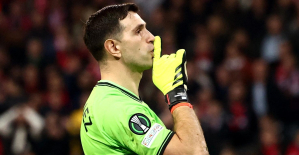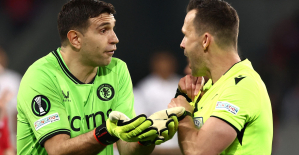Now it has also caught the biggest hope against Alzheimer's disease. Two large patient studies with a developed in Zurich active ingredient failed. The US-biotech company Biogen together with the Japanese collaboration partner, Eisai, in a press release.
Shortly after the announcement, the share fell price of Biogen temporarily by more than 20 percent.
The patient studies had to be canceled because already before the end of the Experiments it has become clear that the study objective could not be reached. The goal was for the patient, the progressive stop at the end of Forget.
Pfizer have tested out
the active ingredient, Biogen and Eisai, is a antibody to make in the brain of Alzheimer's patients, a pathological deposition, Beta-Amyloid, harmless.
Similar approaches have been pursued by many pharmaceutical companies and all have failed – most recently, the Lausanne-based company AC Immune, together with Roche. At the end of January, the two Swiss companies had to announce that for the antibody Crenezumab.
A drumbeat, too, was, as last year, the world's largest pharmaceutical company, Pfizer, announcing, completely out of the research of neurodegenerative diseases, including Alzheimer's and Parkinson's, to get out. The reason is that in the medium term, the US group's expected success on the field.
Unusually slow disease course
Biogen and Eisai were hoping for a special trump card in the Hand. In fact, researchers and investors had expected, the trials with voltage. Because the antibody Aducanumab had been developed according to a natural model. Researchers at the University of Zurich had chosen a special approach.
Instead of looking at what makes patients sick, they analyzed why some people in old age to remain mentally fit. Or why some Alzheimer's patients show an unusually slow disease course. The Team found evidence of a specific antibody that attacks the harmful deposits in the brain. The Start-up company Neurimmune in Schlieren, has developed the antibodies, and Biogen for the license granted.
The 1600 patients participated in the two studies, once-monthly antibody Infusion, without success.
110 new drugs in the Test
"This disappointing news to confirm how complex it is to treat the Alzheimer's disease and how necessary it is to gain further knowledge in the neurosciences," said Michel Vounatsos, the CEO of Biogen, in a statement to the press. Biogen will pursue the development of a potential Alzheimer's drugs. Two further studies with the antibody Aducabumab, however, were also stopped and another one that was planned with the active ingredient, will be re-evaluated.
"The results are very disappointing for Alzheimer's patients and their families as well as for the entire Neurimmune Team," says Roger Nitsch, CEO and President of Neurimmune, in a press release.
Although in recent years more than 100 substances against Alzheimer's disease in studies failed to continue the search for a drug. Currently, around 110 new drugs are tested in patient studies.
Worldwide, 44 million people are affected by dementia, in Switzerland, 144'000. Alzheimer's disease is the most common Form of dementia. (Editorial Tamedia)
Created: 21.03.2019, 18:47 PM

 Sydney: Assyrian bishop stabbed, conservative TikToker outspoken on Islam
Sydney: Assyrian bishop stabbed, conservative TikToker outspoken on Islam Torrential rains in Dubai: “The event is so intense that we cannot find analogues in our databases”
Torrential rains in Dubai: “The event is so intense that we cannot find analogues in our databases” Rishi Sunak wants a tobacco-free UK
Rishi Sunak wants a tobacco-free UK In Africa, the number of millionaires will boom over the next ten years
In Africa, the number of millionaires will boom over the next ten years WHO concerned about spread of H5N1 avian flu to new species, including humans
WHO concerned about spread of H5N1 avian flu to new species, including humans New generation mosquito nets prove much more effective against malaria
New generation mosquito nets prove much more effective against malaria Covid-19: everything you need to know about the new vaccination campaign which is starting
Covid-19: everything you need to know about the new vaccination campaign which is starting The best laptops of the moment boast artificial intelligence
The best laptops of the moment boast artificial intelligence Bitcoin halving: what will the planned reduction in emissions from the queen of cryptos change?
Bitcoin halving: what will the planned reduction in emissions from the queen of cryptos change? The Flink home shopping delivery platform will be liquidated in France
The Flink home shopping delivery platform will be liquidated in France Bercy threatens to veto the sale of Biogaran (Servier) to an Indian industrialist
Bercy threatens to veto the sale of Biogaran (Servier) to an Indian industrialist Switch or signaling breakdown, operating incident or catenaries... Do you speak the language of RATP and SNCF?
Switch or signaling breakdown, operating incident or catenaries... Do you speak the language of RATP and SNCF? The main facade of the old Copenhagen Stock Exchange collapsed, two days after the fire started
The main facade of the old Copenhagen Stock Exchange collapsed, two days after the fire started Alain Delon decorated by Ukraine for his support in the conflict against Russia
Alain Delon decorated by Ukraine for his support in the conflict against Russia Who’s Who launches the first edition of its literary prize
Who’s Who launches the first edition of its literary prize Sylvain Amic appointed to the Musée d’Orsay to replace Christophe Leribault
Sylvain Amic appointed to the Musée d’Orsay to replace Christophe Leribault Skoda Kodiaq 2024: a 'beast' plug-in hybrid SUV
Skoda Kodiaq 2024: a 'beast' plug-in hybrid SUV Tesla launches a new Model Y with 600 km of autonomy at a "more accessible price"
Tesla launches a new Model Y with 600 km of autonomy at a "more accessible price" The 10 best-selling cars in March 2024 in Spain: sales fall due to Easter
The 10 best-selling cars in March 2024 in Spain: sales fall due to Easter A private jet company buys more than 100 flying cars
A private jet company buys more than 100 flying cars This is how housing prices have changed in Spain in the last decade
This is how housing prices have changed in Spain in the last decade The home mortgage firm drops 10% in January and interest soars to 3.46%
The home mortgage firm drops 10% in January and interest soars to 3.46% The jewel of the Rocío de Nagüeles urbanization: a dream villa in Marbella
The jewel of the Rocío de Nagüeles urbanization: a dream villa in Marbella Rental prices grow by 7.3% in February: where does it go up and where does it go down?
Rental prices grow by 7.3% in February: where does it go up and where does it go down? With the promise of a “real burst of authority”, Gabriel Attal provokes the ire of the opposition
With the promise of a “real burst of authority”, Gabriel Attal provokes the ire of the opposition Europeans: the schedule of debates to follow between now and June 9
Europeans: the schedule of debates to follow between now and June 9 Europeans: “In France, there is a left and there is a right,” assures Bellamy
Europeans: “In France, there is a left and there is a right,” assures Bellamy During the night of the economy, the right points out the budgetary flaws of the macronie
During the night of the economy, the right points out the budgetary flaws of the macronie These French cities that will boycott the World Cup in Qatar
These French cities that will boycott the World Cup in Qatar Europa Conference League: the semi-final flies to Lille, which loses to the wire against Aston Villa
Europa Conference League: the semi-final flies to Lille, which loses to the wire against Aston Villa Lille-Aston Villa: Cash disgusts Lille, the arbitration too... The tops and the flops
Lille-Aston Villa: Cash disgusts Lille, the arbitration too... The tops and the flops Handball: Les Bleues in the same group as Spain at Euro 2024
Handball: Les Bleues in the same group as Spain at Euro 2024 Europa Conference League: for Létang, Martinez “does not have the attitude of a high-level athlete”
Europa Conference League: for Létang, Martinez “does not have the attitude of a high-level athlete”


















